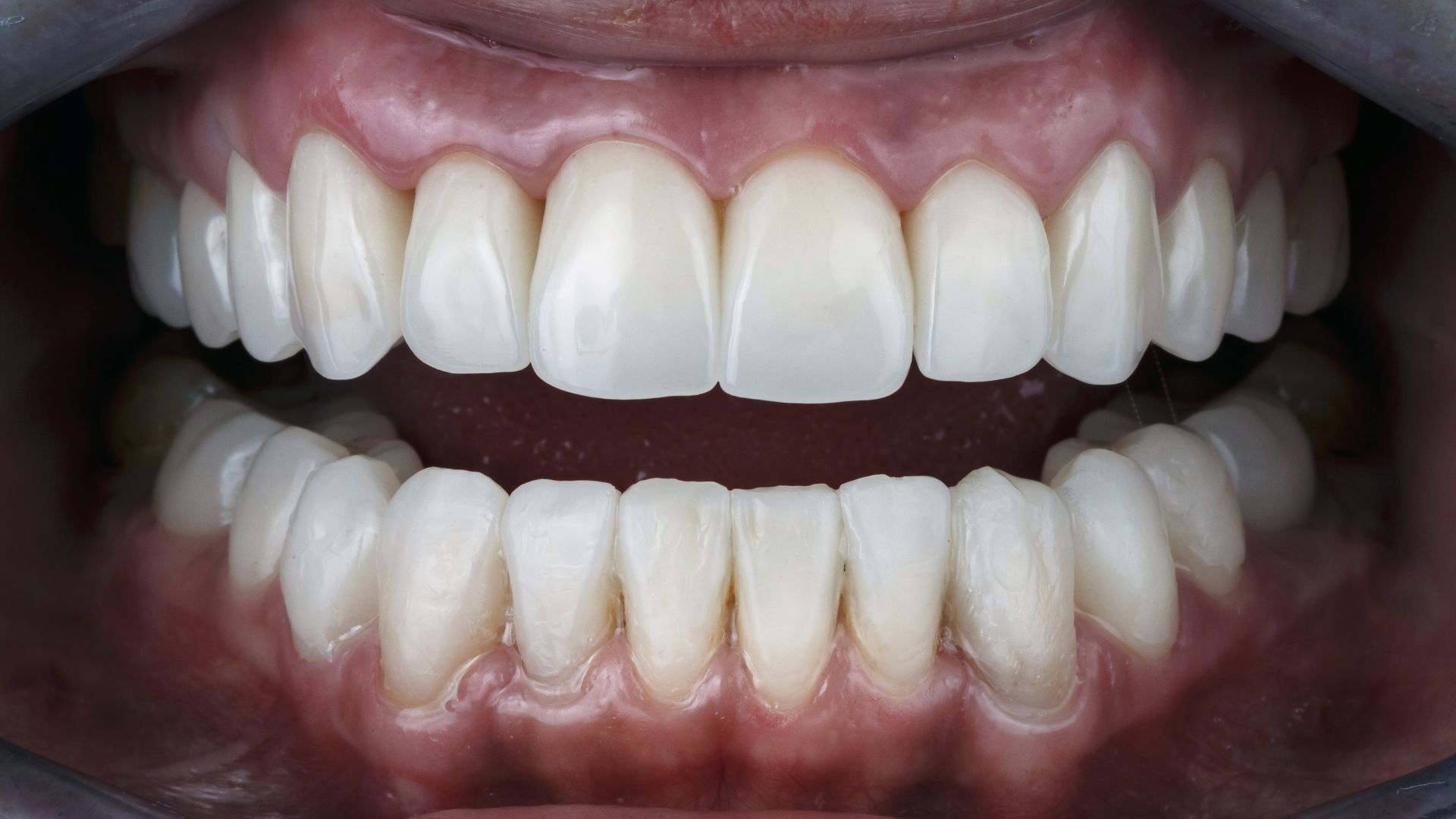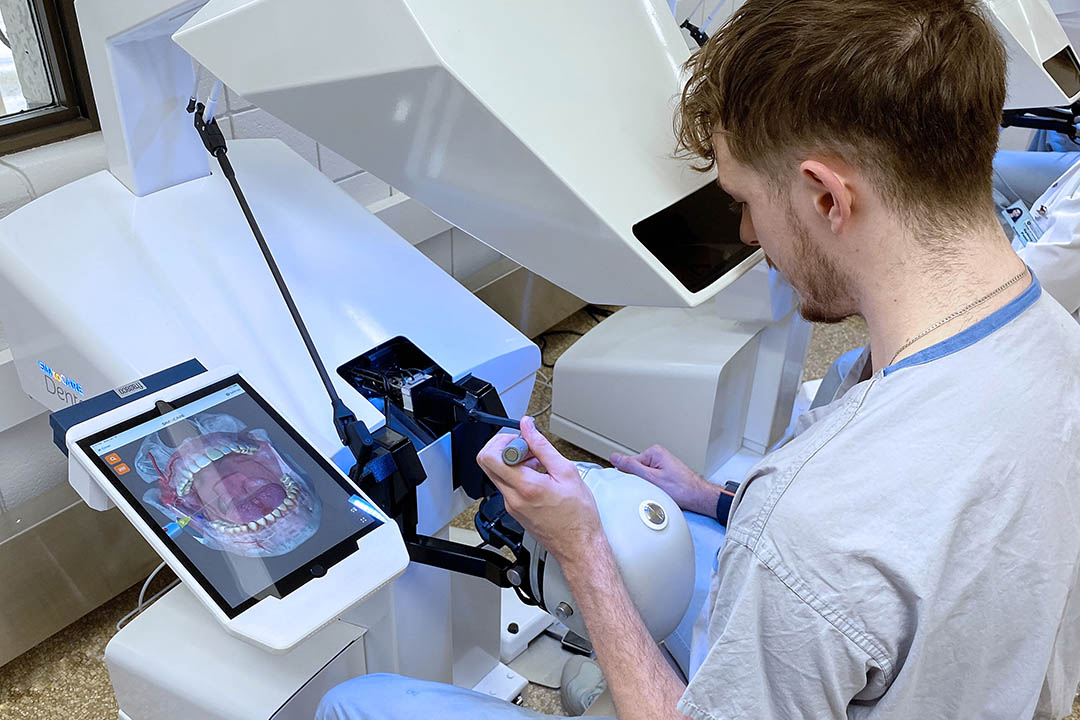Scientific Sessions

Track-01: Innovations in Preventive Dentistry
This session explores innovations in preventive dentistry, emphasizing digital diagnostics, AI-driven risk assessment, minimally invasive treatments, and personalized preventive care. Participants will learn how fluoride therapies, laser applications, and bioactive materials support enamel remineralization, while teledentistry and patient education platforms improve oral hygiene adherence, reduce dental caries and periodontal disease, and promote lifelong oral health.

Track-02: Digital Dentistry & 3D Printing
This session focuses on digital dentistry and 3D Printing innovations transforming restorative and cosmetic dental care. Attendees will examine CAD/CAM workflows, 3D-printed implants, crowns, and orthodontic models that improve precision, reduce treatment time, and enhance outcomes. Advanced scanning, additive manufacturing, and customized prosthetic solutions empower clinicians to deliver efficient, patient-centered dental care.

Track-03: Regenerative Endodontics

Track-04: Implant Surgery & Osseointegration Techniques
This session covers advanced implant surgery and osseointegration techniques to enhance implant stability and long-term success. Topics include guided surgical protocols, bone grafting, immediate loading implants, and minimally invasive procedures. Attendees will gain insights into maximizing bone-implant integration, improving prosthetic retention, functional efficiency, and aesthetic outcomes in modern restorative dentistry.

Track-05: Implant Prosthetics & Rehabilitation
This session focuses on implant prosthetics and rehabilitation, emphasizing full-mouth reconstruction, prosthetic restoration, and personalized treatment planning. Participants will learn advanced implant technologies, CAD/CAM prosthetics, and minimally invasive approaches for patients with missing teeth, jawbone deficiencies, or complex dental conditions, ensuring functional restoration, aesthetic improvement, and long-term oral health.

Track-06: Clear Aligners & Modern Orthodontics
This session explores clear aligners and modern orthodontics for precise teeth alignment. Attendees will examine digital scanning, 3D imaging, and customized treatment planning that deliver effective, comfortable, and discreet orthodontic solutions. Strategies for managing malocclusion, overcrowding, and misalignment are discussed, emphasizing minimal visits and optimal oral health outcomes.

Track-07: Periodontal Therapy & Disease Management
This session examines periodontal therapy and disease management, including scaling, root planing, laser treatments, and regenerative procedures. Attendees will learn strategies for early detection and management of gingivitis, periodontitis, and advanced periodontal conditions to prevent tooth loss and systemic complications, promoting long-term oral health and evidence-based clinical practice.

Track-08: Aesthetic Soft Tissue Surgery
This session focuses on aesthetic soft tissue surgery for enhancing facial and oral harmony. Techniques include gum contouring, laser-assisted procedures, and minimally invasive approaches for smile improvement and soft tissue rejuvenation. Attendees will explore functional restoration, cosmetic enhancement, and precise surgical planning to achieve natural, long-lasting results.

Track-09: Oral Cancer Screening & Early Detection
This session covers oral cancer screening and early detection strategies. Participants will review digital imaging, biopsies, and risk assessment for precancerous lesions and early-stage oral cancers. Emphasis is placed on improving survival rates, treatment outcomes, and patient quality of life through routine screening, particularly for high-risk populations.

Track-10: Pediatric Dentistry & Child Oral Care
This session highlights pediatric dentistry and child oral care from infancy to adolescence. Topics include preventive strategies, fluoride treatments, orthodontic guidance, and behavior management. Participants will explore techniques for cavity prevention, safe dental interventions, and fostering lifelong oral hygiene habits in children.

Track-11: Oral & Maxillofacial Surgery Innovations
This session explores innovations in oral and maxillofacial surgery, including minimally invasive procedures, 3D-guided implantology, craniofacial reconstruction, and orthognathic surgery. Attendees will examine robotic-assisted surgery, regenerative therapies, and digital surgical planning to enhance precision, reduce recovery time, and optimize patient outcomes in complex craniofacial and maxillofacial care.

Track-12: Cosmetic Dentistry & Smile Design
This session focuses on cosmetic dentistry and smile design, covering teeth whitening, veneers, dental bonding, and full smile makeovers. Participants will explore digital smile simulations, laser-assisted treatments, and evidence-based aesthetic strategies to enhance oral aesthetics, patient confidence, and clinical outcomes through personalized, high-precision interventions.

Track-13: Full-Mouth Rehabilitation & Complex Prosthodontics
This session examines full-mouth rehabilitation and complex prosthodontics for patients with extensive dental damage or missing teeth. Topics include dental implants, crowns, bridges, occlusal adjustments, and bite correction. Participants will learn personalized treatment planning, evidence-based restorative strategies, and innovative prosthodontic techniques to restore oral function, aesthetics, and long-term dental health.

Track-14: Dental Biomaterials & Nanotechnology
This session highlights advancements in dental biomaterials and nanotechnology. Topics include nanocomposites, bioactive nanoparticles, and biomimetic materials that enhance restorations, implant integration, and tissue regeneration. Attendees will examine antibacterial properties, precision drug delivery, and minimally invasive applications, exploring cutting-edge research in dental nanoscience for next-generation clinical dentistry.

Track-15: Laser Dentistry Applications
This session explores laser dentistry applications for precise, minimally invasive treatments. Topics include cavity removal, gum reshaping, periodontal therapy, teeth whitening, and root canal procedures. Attendees will learn how laser technologies improve treatment accuracy, reduce pain, accelerate healing, and enhance patient comfort across preventive, restorative, and cosmetic dental care.

Track-16: Oral Microbiome & Systemic Health
This session examines the oral microbiome’s role in systemic health. Participants will learn how dysbiosis contributes to periodontitis, cardiovascular disease, diabetes, and neurodegenerative disorders. Strategies include oral hygiene optimization, probiotics, and precision microbiome therapies. Attendees will explore research linking oral and systemic health, emphasizing prevention and evidence-based interventions.

Track-17: Geriatric Dentistry & Elderly Oral Care
This session focuses on geriatric dentistry and specialized care for aging populations. Topics include preventive strategies, prosthodontics, periodontal management, oral cancer screening, and treatment of age-related conditions like dry mouth and tooth loss. Attendees will learn minimally invasive approaches and interdisciplinary care strategies to maintain oral health and quality of life in older adults.

Track-18: Dental Trauma & Emergency Care
This session covers dental trauma management and emergency care for fractures, avulsed teeth, abscesses, soft tissue injuries, and facial trauma. Participants will learn rapid assessment, stabilization, pain control, and restorative interventions. Emphasis is placed on pediatric trauma, urgent care protocols, and evidence-based strategies to prevent long-term complications and restore oral function.

Track-19: Oral Pathology & Advanced Diagnostics
This session examines oral pathology and advanced diagnostics. Topics include histopathology, molecular testing, digital imaging, and biomarker identification. Attendees will explore early detection of oral cancer, genetic disorder assessment, and periodontal disease evaluation. The session emphasizes evidence-based diagnostic strategies bridging research and clinical practice for improved patient outcomes.

Track-20: Sedation & Pain Management in Dentistry
This session focuses on sedation and pain management in dentistry to ensure patient comfort during procedures. Topics include nitrous oxide, oral and IV sedation, and anxiety-reduction protocols. Attendees will examine evidence-based strategies for pediatric, complex, and anxious patients, highlighting safe, effective pain control and enhanced procedural compliance.

Track-21: Artificial Intelligence in Dental Practice
This session explores AI applications in dental practice, including diagnostics, treatment planning, and predictive analytics. Topics cover AI-assisted detection of caries, periodontal disease, and oral cancers, workflow optimization, and integration of robotic systems. Participants will learn how AI improves accuracy, efficiency, and patient-centered care in modern dentistry.

Track-22: Teledentistry & Remote Patient Care
This session examines teledentistry and remote patient care. Topics include virtual consultations, digital imaging, remote monitoring, and personalized treatment planning. Participants will explore strategies for improving access to care, follow-up adherence, and preventive interventions, particularly in underserved or rural areas, leveraging technology for high-quality dental services.

Track-23: Dental Education & Simulation Training
This session covers dental education and simulation training for students, professionals, and educators. Topics include digital dentistry simulations, hands-on workshops, and interactive virtual modules. Participants will enhance precision, clinical skills, and treatment planning using evidence-based practices, immersive learning, and expert mentorship to advance professional development.

Track-24: Care for Medically Compromised Patients
This session focuses on dental care for medically compromised patients. Topics include systemic condition assessment, risk management, preventive strategies, and emergency preparedness. Participants will learn multidisciplinary approaches and evidence-based protocols to deliver safe, effective, and patient-centered dental care, minimizing complications and optimizing oral and overall health.

Track-25: Minimally Invasive & Microsurgical Techniques
This session examines minimally invasive and microsurgical dental techniques to optimize outcomes while reducing recovery time and procedural risks. Topics include tissue preservation, high-definition magnification, and precision instrumentation. Participants will learn evidence-based strategies for complex surgeries, enhancing accuracy, postoperative comfort, and patient satisfaction in modern dental care.
Mode of Presentation
Noveltics Group Contacts

Advanced Dental and Oral Health
October 19-20, 2026Rome, Italy